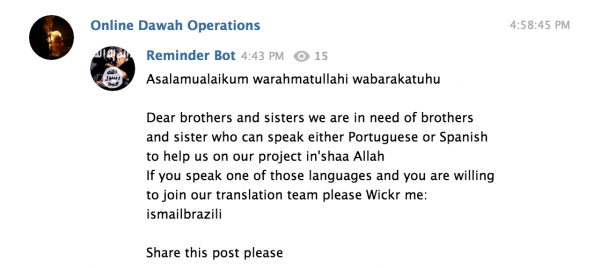Politico: Valerie Jarrett is increasingly asserting control of the administration’s campaign to curtail gun violence — and she’s not afraid of burning White House bridges with firearm manufacturers as she does it.
Even before the latest massacre in Orlando, it was Jarrett who used her influence with President Barack Obama to resurrect the push for new regulations, gun control advocates say. But since that shooting, she’s employed a more aggressive strategy than did Vice President Joe Biden, whose consensus-building efforts failed to produce new laws three years ago.
Take a recent White House bid to collaborate with weapons manufactures on so-called “smart guns,” which make it impossible for anyone other than an authorized user to fire a weapon — and should be fertile ground for a relatively non-controversial compromise.
But after 30 industry executives refused to show up for a meeting last Friday, Jarrett decided to mobilize nearly 200,000 supporters behind a new assault weapons ban, which industry vehemently opposes and would take a bestseller off the shelves. While it didn’t slam the door on further negotiations, it’s the kind of move that would make any future talks much more difficult.
With Biden dispatched in search of a cure for cancer, and Obama demanding an end to the bloodshed, Jarrett — Obama’s closest friend and conscience in the West Wing — is not just focused on measures like background checks that are much easier to sell to Congress, at least compared to an assault weapons ban. Instead, Jarrett is executing Obama’s call to “politicize” the issue during his last year in office and crank up the pressure on reluctant lawmakers.
“Please keep making your voices heard. Raise them over and over and over and over and over again,” Jarrett said on Monday in an unusual conference call, which was intended for the people who signed a “We the People” petition to ban the AR-15, but was broadcast live on YouTube for anyone to listen.
“I’ve had people say to me, ‘Well I enjoy gong to the firing range and using the assault weapons,’” Jarrett said. “But the pleasure derived from that compared to the horrendous damage that it can do, we believe that the damage warrants banning assault weapons.”
In the wake of the Orlando massacre, which involved a Sig Sauer MCX semiautomatic rifle, both Obama and Biden have made clear that, as Biden put it in his written response to the AR-15 petition, assault weapons “should be banned from civilian ownership.” But Biden focused his message to Congress on passing the background check and terror watch list bills that failed in the Senate on Monday.
Jarrett went further: “There’s no reason why Congress could not reauthorize legislation that would call for that ban.” And stoking support for the assault weapons ban with activists will likely intensify the political fight ahead of the 2016 elections.
Previously, Obama put Biden in charge of crafting the administration’s response to the December 2012 Sandy Hook Elementary shootings, and the vice president still serves a prominent role as sympathizer-in-chief. But since his effort ran aground, gun control advocates say, it’s been Jarrett who’s pushed for action over the last year despite congressional gridlock.
“As the months went by and ideas were discussed and priorities came and went, she was a constant source of influence in the building making sure that the process was moving forward,” said Peter Ambler, director at Americans for Responsible Solutions. When the group’s co-founders, former Rep. Gabby Giffords and Mark Kelly, proposed new executive actions during a January 2015 meeting with Obama and Jarrett in Phoenix, Ambler recalled, the president turned to his senior adviser to make them happen. He announced new directives to expand background checks a year later.
“I don’t think that there is an individual at the White House except for the president who can claim more responsibility for the successes of the executive actions than Valerie Jarrett,” Ambler said.
Biden isn’t completely out of the picture, though he’s increasingly turned his attention to his “Cancer Moonshot.” As the architect of the now-expired 1994 assault weapons ban and original background check bill, he’s got substantial credibility with activists, especially those driven by grief.
“I refuse to give up, we refuse to give up,” Biden said on Wednesday at a Washington fundraiser for Sandy Hook Promise, a gun violence prevention group founded by parents of the first-graders gunned down at the elementary school.
“It took me seven years to get the first ban put in place,” said Biden, who had argued that the administration should prioritize guns even before the Newtown shooting. “We should not stop.”
But as the audience waited for Biden to come to the podium, Jarrett was in the back of the room, deep in conversation, as her top aides — Paulette Aniskoff, Bess Evans and Yohannes Abraham — circulated through the crowd. It was those aides, in Jarrett’s Office of Public Engagement, who have gradually taken on the bulk of the gun portfolio over the past three years, even as they continue to collaborate with Biden’s staff.
The portfolio has been something of an orphan in the Obama administration, with no obvious point person, particularly after the legislation Biden was working on failed in April 2013, and Bruce Reed, who had run an exhaustive series of outreach and strategy sessions with gun control advocates in the Eisenhower Executive Office Building, stepped down as Biden’s chief of staff in late 2013.
Jarrett brought it back into the West Wing — and out to the statehouses, advocates said, by making it a priority for the Office of Intergovernmental Affairs. In May, for example, Jarrett presided over a White House strategy session on enacting local laws to expand background checks and promote gun safety technology with elected officials from 48 states.
In his search for progress after Newtown, Biden and his staff famously met with, as he put it, “every possible stakeholder in this debate; 229 separate groups,” in just a few months. They settled on expanding background checks, a measure that’s hovered above 80 percent public approval since 2013. The bill failed in the Senate then, and an updated version failed on Monday, 56 to 44.
Meeting with ‘stakeholders’ is also a raison d’etre of Jarrett’s office.
“Part of the Valerie Jarrett portfolio is working with the many constituencies that have a stake in the issues that matter most, and one of those has become the family members of victims of shootings,” said Arkadi Gerney, a senior fellow at the Center for American Progress who works on gun policy.
Jarrett herself is in that category: she’s recounted how her grandfather was killed with his own gun when burglars broke into his office.
She was trying the outreach approach before a gunman killed 49 people in Orlando, when her focus was on smart guns. The administration is working to get buy-in from police for the technology, in hopes of creating a new market; earlier this month, the Department of Justice hosted law enforcement officials to talk about how smart guns might work for their departments.
Manufacturers have expressed some openness to smart guns — they could be a whole new sales category, after all — but they fear any sort of government mandate, as well as backlash from gun rights groups.
So weeks before the Orlando shooting, Jarrett and Chief of Staff Denis McDonough invited executives from about 30 gun-makers to the White House. They declined, according to an industry executive, because they perceived the invitation as “disingenuous.”
Jarrett lashed out at the gun lobby in her call.
“The NRA over the past seven and a half years has never been willing to come to the table and work with us,” she said. (Incidentally, both the industry and the NRA met with Biden and his staff in 2013, but there was no detente.)
And there’s some appetite for action on the Democratic side of the campaign trail: Hillary Clinton wants to take “weapons of war” off the streets.

But despite Jarrett’s call to resurrect a bill banning assault weapons, there’s little appetite for it in Congress. Sen. Dianne Feinstein (D-Calif.), who wrote the White House’s preferred version in 2013, hasn’t even decided to reintroduce it.


